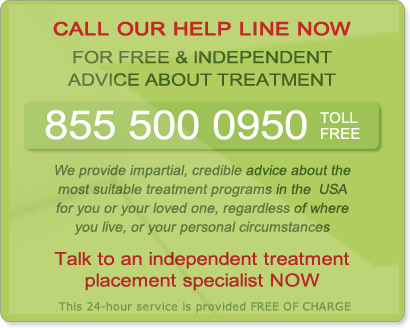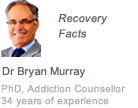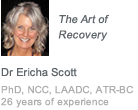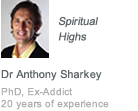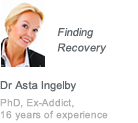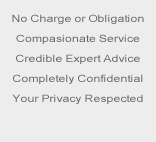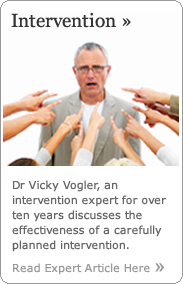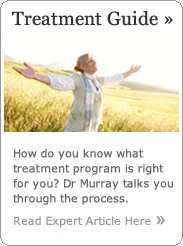Addictiveness of Alcohol
It has been a tough day at the office. Now would be a good time to slip down to the bar across the street and have a drink or two, just to help you unwind. No-one joining you – that does not matter; you are not intending to stay in the bar too long… just a couple of drinks, and maybe one for the road. The alcohol makes you feel better. You are relaxing. The stresses of the office melt away for a while. Alcohol makes you feel good, and feeling good is what life is all about.
Soon, you need alcohol to make you feel good as often as possible. The bar is a daily fixture and you are in there until they ask you to leave at the end of the night. But even if the bar is closed there are places you can buy stuff to drink at home. Probably best if you keep that a secret, though.
Life seems to be even harder just lately; the boss thinks you are becoming inefficient and unreliable, your wife complains about the time and money you are spending at the bar. You feel lousy most of the time, unless you are drinking.
Already, you are falling prey to the easy addictiveness of alcohol.
Why is alcohol addictive?
Despite its universal and unregulated availability, alcohol shares many of the properties commonly associated with prescription drugs and illicit narcotics. Advertising, marketing, packaging and the many distinctive tastes and flavors of alcohol are all designed to strengthen our association of alcohol with good times or with a particular social status.
However, as with most drugs, alcohol is a toxin. As we drink alcohol, our body adjusts in order to compensate for the toxicity we are introducing. At lower levels of alcohol intake (i.e. the first few drinks) this adjustment initially centers on the release of chemicals in the brain, namely:
- Dopamine – these are responsible for the pleasurable feelings we experience when drinking alcohol. Effectively dopamine release is a ‘reward’ from the brain. It reduces tension, relaxes inhibition and stimulates a general sense of well being.
- Endorphins – endorphins are the body’s natural ‘painkiller’. When released into the body in significant quantity they not only inhibit the reception of pain, but also induce feelings of increased happiness and ultimately euphoria.
The combined effects of dopamine and endorphin release and the positive associations with alcohol consumption that they create are considered to be among the principle contributors to the addictiveness of alcohol.
The addictiveness of alcohol can affect anyone
It is easy to label the pathetic figure of the semi-conscious drunken man sprawled in the shop doorway as an ‘alcoholic’ and pass him by without giving a second thought for the person that he really is, or the tragic combination of circumstances that have driven him to his current state.
But the addictiveness of alcohol is indiscriminate. From the high-profile movie star indulging their hedonistic but ultimately destructive lifestyle to the next door neighbor who suffers a nervous disorder and can only find relief through reliance on alcohol, none of us that drink alcohol can ever truly be free from the risk of addiction.
Those affected by an addiction to alcohol cannot simply be categorized as ‘alcoholics’ and brushed aside. They are people who suffer from a particular kind of illness. They are not, by default, criminals, although their illness may compel them to commit criminal acts. They are not necessarily weak, nor mentally ill. They have not voluntarily forfeited their right to compassion, forgiveness and support. They do not abuse alcohol; alcohol abuses them.
Without professional help to treat this illness, as you would treat any other potentially harmful condition or disease, alcohol will continue to abuse them. And, as with other illnesses, if an addiction to alcohol is left untreated the long-term consequences may be fatal.
Recognizing and dealing with the addictiveness of alcohol
The story of the office worker who becomes increasingly dependent on alcohol to relieve the stresses of the day may be familiar to you. Perhaps it is a reflection of your own life, or the life of someone you know.
We live in a world of unrelenting pressures, stresses and worries; whether they be financial, family- or employment related or anything else, it is perfectly normal human nature to want to find an easy way to escape these anxieties for a while.
Research suggests that the moderate, sensible and controlled intake of alcohol has been shown to be relatively harmless, and in some cases potentially beneficial to health. It is when alcohol intake becomes a necessity rather than a pleasure that action needs to be taken.
You have the power and the control to take that action. An addiction to alcohol is a treatable disease, and recovery is a reality. Consider the following questions and, answering honestly, see how closely they apply to you or to someone you suspect may have an addiction to alcohol.
- Has it often been suggested that you might be drinking too much?
- Do you experience feelings of regret after you have been drinking?
- Have you ever lied about, or kept secret, your drinking habits?
- Do you find it difficult to stop drinking after the first couple of drinks?
- Do you generally drink alone as opposed to part of a social group?
- Do you regularly experience a loss of memory after you have been drinking?
- Has drinking ever adversely affected your home, working or social life?
- Do you find that you need to drink more now than you used to in order to get the same effect?
The more of these questions that can be answered ‘yes’, the greater the likelihood that you, or someone you know, has succumbed to the addictiveness of alcohol.
Alcohol dependency is not a sign of failure, weakness or a criminal nature. It does not signify an inferior or worthless person. It does not dictate that a person should be automatically shunned, mocked or criticized.
Alcohol dependency is an illness. Professional help and support is available to conquer this illness.
Don’t let the addictiveness of alcohol destroy your life, or the life of someone you care for. Get the professional help you need now.


